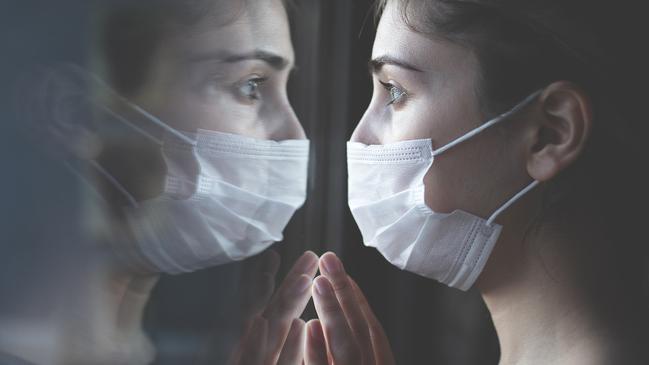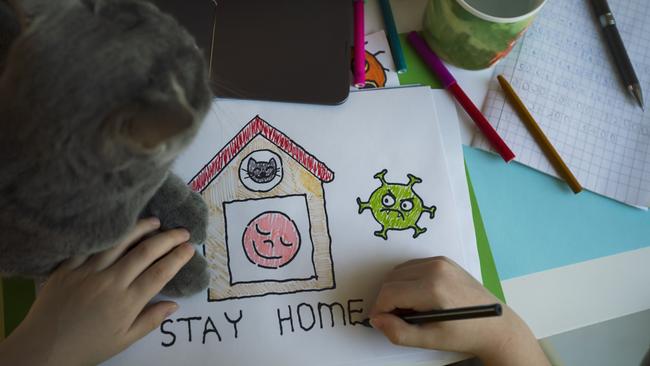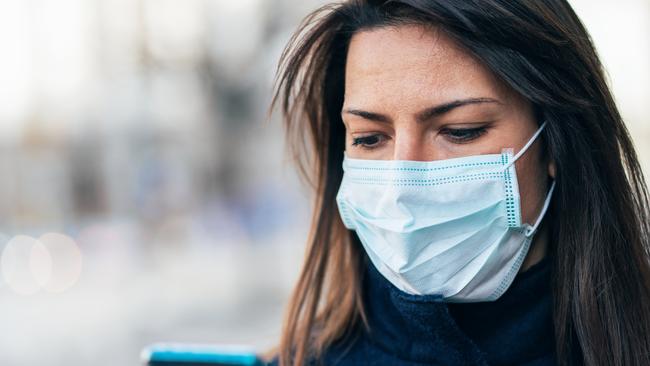Family and domestic violence will only get worse with Australia’s COVID-19 lockdowns
As anyone who has experienced domestic violence knows, home is often the most dangerous place to be. Which is why the new lockdown and self-isolation rules are so terrifying, writes Rebecca Poulson.
Rendezview
Don't miss out on the headlines from Rendezview. Followed categories will be added to My News.
As we try and navigate these unprecedented times, I can’t help but think about the women and children for whom home is not a safe haven, but a battleground of terror and abuse.
As someone who has survived a violent relationship, I feel an overwhelming sense of anxiety for the women who now have to navigate an abusive partner 24 hours a day.
The terrorists that perpetrate violence against women in the home are not unpredictable strangers; they are normal, average blokes.
We know from the research that men who are more likely to perpetrate violence against women often engage in a pattern of coercive control, where the perpetrator seeks to regulate and intimidate their partner until they are left without self-worth.
Unfortunately, for women already experiencing gendered violence, state-sanctioned social isolation with COVID-19 will only exacerbate the threat of this violence as they are trapped with their abuser with nowhere to go.

The huge spike we are currently seeing for domestic violence response services reflects the kind of rise in intimate-partner violence we saw during the bushfire crisis. As abusers lose control over factors outside of their home, they seek to tighten control over the people with whom they live – their partners and/or children.
All of us who have been there know exactly what I am talking about, and like me, are acutely aware of the danger of ‘home’.
Home wasn’t a safe place for my sister when she tried desperately to keep her two children, Malee and Bas, safe from their abusive father who ultimately ended up taking their young lives along with my father, Peter’s.
And home certainly wasn’t safe for Hannah Clarke in Queensland, who we know left no stone unturned when trying to protect her children, Aaliyah, 6, Laianah, 4, and Trey, 3 from their dangerous father. Unfortunately, society and the system failed Hannah and her three kids and it failed my niece and nephew, and it failed and my beautiful Dad.
The current federal parliamentary inquiry into the family law system is yet another example of how the system is failing vulnerable women who are, indirectly, being accused of lying about their experiences of domestic violence in order to benefit in the family court.

The systems, as they stand, have already let down the majority of the two million women in Australia who currently have or who have had an abusive partner, and that is before the added stress of COVID-19.
The systems conveniently ignore the fact that up to 85 per cent of families going through the family law system report histories of family violence, including emotional abuse and physical violence. Despite this, only three per cent of cases result in no contact with one parent – so if they are trying to show that fathers are hard done by, the statistics show otherwise.
Malee and Bas were killed after the family court granted their father access despite a clear and evidenced trail of abuse. It is a common story.
Women are already in fear knowing the courts will not protect them or their children. So, who do they turn to, especially now in this time of uncertainty?
COVID-19 threatens to put women and their children in challenging situations – if schools close earlier than expected, as some states have already actioned, at-risk children will be forced to stay home in violent situations.

Crisis response services will also continue to be slammed with women fleeing domestic violence looking for temporary accommodation so they can self-isolate safely. While it was good to see the funding boost announced over the weekend for mental health and counselling services for families experiencing domestic violence, we certainly need more resources for these important services to continue to keep up with the increased demand, so that women suffering intimate-partner violence don’t become the face of this already devastating period.
While this is an opportunity for many to spend time with loved ones, we must not forget about those women for whom home is not safe.
We can stop the threat of terror behind closed doors, provided prevention, intervention and crisis response service are adequately resourced to scale up the delivery of their programs and services.
In parallel, we must also address this deep cultural issue that consistently condones, excuses and minimises domestic violence and disbelieves women’s experiences. Stopping the spread of COVID-19 is serious and we must all play our part, but in doing so, let’s make sure we don’t leave those who need our help the most behind.
Rebecca Poulson is the author of Killing Love and an Our Watch Ambassador.
If you or someone you know is impacted by sexual assault or family violence, call 1800 RESPECT on 1800 737 732 or visit www.1800RESPECT.org.au. In an emergency, call 000.


